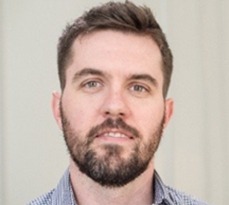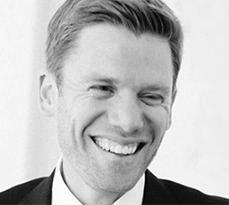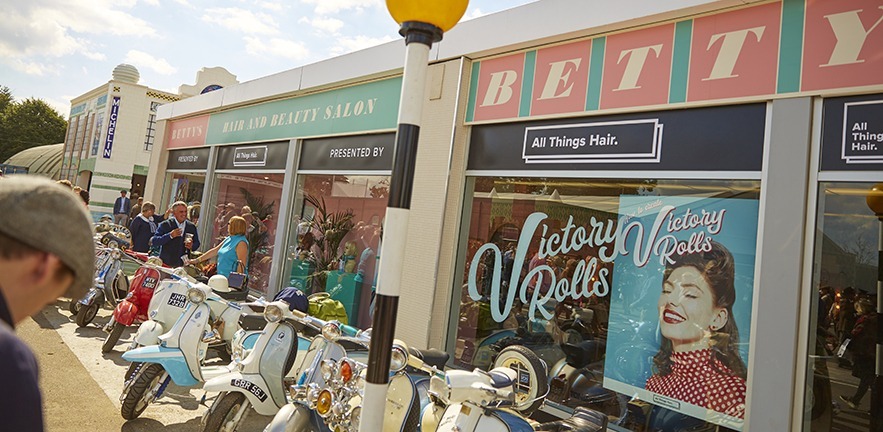Lifting the lid on the ‘Hot Pickle‘ success story and the two MBAs who started their journey over a decade ago when they met in Cambridge and first formed their business.
Rupert Pick and Patrick Hammond formed their successful marketing agency in 2009 after first meeting and formulating their ideas and network together at Cambridge.
In our regular podcast series Changing Careers we hear about their start up story from Marmite to mustard.
Patrick Hammond; “It started in the Summer and we gave ourselves until Christmas to make some money and see what a pop-up shop might do. Rupert had been at Unilever working as the Marmite brand manager. He persuaded Unilever to give him the brand licensing for Marmite and together, we then produced a range of merchandise from that. There was no shop or outlet for this material at the time, so it was a logical progression for the merchandise business to develop into a physical outlet.”
Patrick came from a performing arts background and Rupert had been in the FMCG fast moving consumer goods market with Unilever and the idea to start a business was formulated in a ‘greasy spoon’ café in the Mill Road area of Cambridge, an area populated by students and small independent retail businesses.

“We took on all the risk from the outset, we received an initial loan of £40,000 sterling with Nat West Bank and seven weeks to pay it back – which we did! Unilever gave us the licence, but we took all the risk at the time”, says Patrick.
“We launched a pop-up store in central London on Regent Street, a premier retail destination with two floors and a window display all focused on the Marmite brand. It is an unusual brand anyway and has quite a cult following, and a lot of brand empathy, so we made the brand anchor extremely wild and whacky with mannequins in the window having tea and marmite”.
“We took the brand very boldly into the retail space, and at the time the question from many visitors was why?”
The initial steps were in the worst financial and economic crisis in the UK for a decade, yet fast forward to today and Hot Pickle is a thriving brand consultancy with very specific ideas about the use of experiences in brand marketing.
In 2010 they took the idea of the Marmite pop up shop one step further, and working with the flagship central London department store, Selfridges, they worked with a wider number of brands, also sourced through Unilever under licence, such as Vaseline and mustard. “Step by step with each successful project leading to another one we were organically developing the full consultancy business that exists today”, Patrick explains further.
Hot Pickle was fast becoming the go to agency for all things retail and experiential, a growing trend in the marketplace at the time and one that they very much spearheaded in London and across the UK. It was at that time that they needed to examine the business and review the portfolio on the table and ask themselves;

“Were we a Marmite business, a retail business with one or two retail outlets or were we trying to turn ourselves into a creative consultancy, supporting brands as they develop their retail proposition”, Rupert says.
“We did the numbers; and we felt it would be more interesting to apply our business model to multiple brands, to not own any retail premises, and then it became about how many more brands could we offer this service to”.
“This was a big turning point, to develop and create a second brand and slowly build up a portfolio to clients, to prove that we were a credible business and not just a ‘one trick pony’.”
As a full brand consultancy agency offering experiential environments, Hot Pickle work to create experiences, physical spaces that people can walk into and engage with a given brand in that space. The company became a leader in experiential marketing, a sector that is now still growing and in demand, but at the outset the industry was sceptical.
The high street experience as marketing content – hope for the high street?
Today, the experience of the pop-up space or retail outlet is used as a platform to then populate a full marketing campaign from customers and visitors sharing their own images on Instagram, through to creating digital content as a means to gain influencers in the marketplace.
Rupert continues; “We sit between retail sales and marketing, so for example the Magnum Pleasure Store where you can personalise your own ice cream, we sell the products, but it is also a communications platform.”
When the business grew marketing and digital marketing were very much separate entities, but now the sector has become led by digital and so direct marketing and online content sit very much together.
Hot Pickle feel the traditional high street still has a place in the changing face of the retail sector and the way we now consume products.
“Our job is critical as we build the brand loyalty and often brand empathy. The transactional piece is more often now done online, but we are there to deliver the experience element. The job of the physical store is to deliver entertainment, but very clearly the two elements between entertainment and product acquisition have to work in harmony and the really big brands and successful retailers fully understand that”, says Rupert.
“The high street and retail spaces will always be the showroom, the bricks and mortar a window into that brand”.
Patrick elaborates; “Our clients are always looking at ways to develop more direct relationships with the customer and using a physical space is another way to explore that and to find new routes to market”.
“We still have a need as society to congregate in a communal sense; instead of places selling products you may find that there are more spaces selling services, from hairdressers to coffee shops and bars”, explains Rupert.
Growing the business – recruiting talent for growth and diversity
Hot Pickle purposefully develops diversity and inclusion across its pool of talent, to keep it both fresh and ahead of the trends. Patrick goes onto explain, “We look at recruiting those who bring diversity of thought and experience and our team comes from a wide variety of backgrounds, and consequently bring a huge variety of skills and perspective, essential for our business to grow and stay relevant in the fast-moving consumer goods market”.
“Our main aim is curiosity; we are helping our clients to be distinctive and to create brand new things from Jam to ice cream or skin creams!”
“We are lucky that a lot of our products are fun; beer, ice cream, jams, so we don’t have to take ourselves too seriously – we can be really adventurous with our spaces and our experiences.”
As a business it still took Rupert and Patrick a few years to work out what they were about. They had some business pivots along the way, so the licensing business wasn’t leveraging alongside their core business, so it was worked out of the business model.
As co-founders they also started their journey in Cambridge but have developed such a rapidly expanding and fast-moving business that like a lot of start-ups, they can no longer both be involved with every decision or manage every challenge.
Rupert describes that, “One of the hardest things was stepping back from that day to day intense relationship with each other. We worked together, our families grew and developed together, and we socialised together; but like all good ‘marriages’ you have to learn to step back from that intensity.” Patrick concludes, “Over the years we worked out what skills we both had and where best our individual personalities and skills lay for the business need at any given time”.
Rupert Pick along the way experienced a personal tragedy when his daughter was born with an extremely rare genetic condition. When Rupert decided to donate the fees from his next event to the hospital that cared for his daughter, it made him wonder about all the wonderful things that could happen if only more businesses chose to give through their work; so the idea of “Work for Good” was formed. It is now a long-standing fundraising platform encouraging companies to give more easily as part of their day to day transactions, Rupert sits as the Chair of Work for Good and it runs as a separate entity.
As the business continues to grow, they now realise that they need to leave time and space for the team; Patrick expands, “They all have real skills and experience and we now wish to develop pathways for them in turn to grow, develop and take ownership of the company”.
Tips and insights for a career journey
For those starting out on their MBA journey now or even those starting an enterprise of their own I would say;
Patrick’s insights are shared with us:
“When looking for business opportunities, to find a place, follow your nose and find a better way to empty the trash, it may not be the next Google or Amazon; if you can find that niche in the market that’s where opportunity lies”. The mentor Lord Dennis Stevenson encouraged me in this outlook.
“Look for that encouragement to just get going, and don’t worry about having everything planned out perfectly on a page because the page will be wrong anyway.”
“Just when you think you have got it all worked out something else will happen that you have to figure out. It is a constant battle and if you really enjoy that battle it is a great way to make a living, and it is a great way to structure a life, but there is never a day when it is all sorted and you can just put your feet up!.”
Rupert’s tips are highlighted:
“You look to do an MBA to look for answers, to give you confidence. It gives you a lot of the foundation skills and techniques and the network, which is hugely helpful, but no book is going to provide you with a guarantee that things are going to work.”
“It is so helpful to have people around you, we have drawn on our classmates for corporate finance, for procurement advice and finance. Surround yourself with people who are going to help you believe in you.”
“I spent 15 years with a boss and suddenly you are the boss and there is no one else helping you.”


